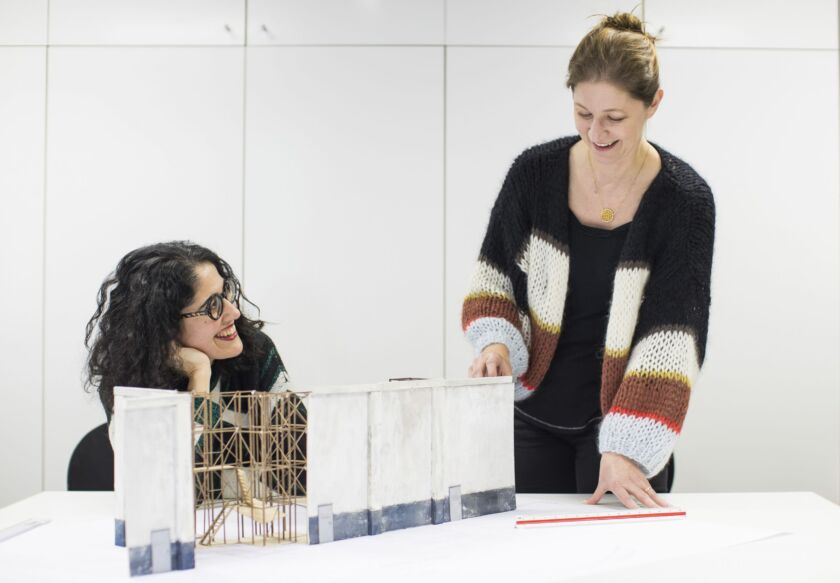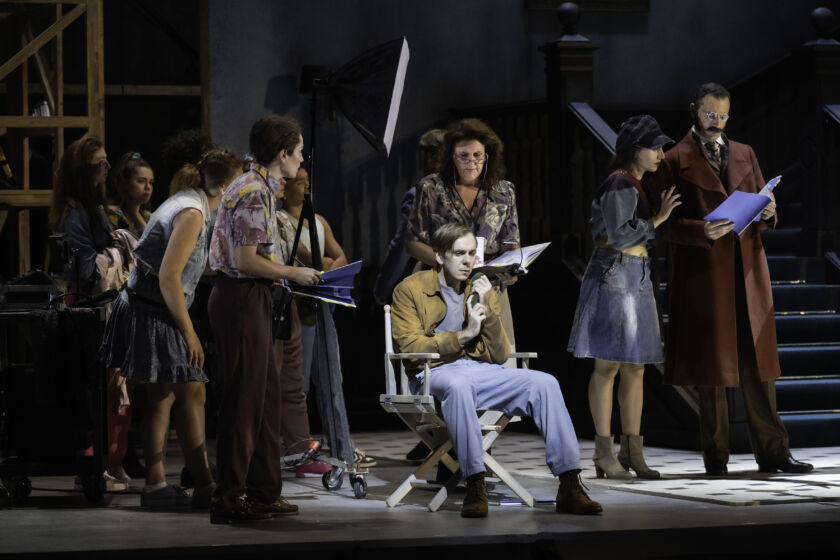About the Production: Les Contes d’Hoffmann

In his last work, Jacques Offenbach put the romantic poet E. T. A. Hoffmann on stage as an opera character. He shows how the profound crisis his protagonist falls into after his separation from Stella, a celebrated artist, also unleashes creative energy: as if to explain this failure of his romantic relationship, Hoffmann improvises the “Tales” which gave Offenbach’s opera their title, and in which Stella appears in the guise of three different women. In this interview, the French director Mariame Clément offers first insights into her views about Les Contes d’Hoffmann.
Who is the protagonist we encounter in Offenbach’s colourful “opéra fantastique”?
Indeed, Hoffmann’s true identity is the central question when staging Les Contes d’Hoffmann. The challenge is to understand the main figure and recognize what it has to tell us. Certainly, Hoffmann – like his real-life model – is an artist, and of course he is the author of the tales we witness in the three central acts. Unusually, Hoffmann also appears as an active figure in these tales. Thereby, the piece transports the notion that every artist recounts himself, his own ego, in his works. In my production, I want to explore how art and life interweave in this concrete case. In doing so, I will connect the three tales with individual stations of Hoffmann’s biography as an artist.
The tales are all unhappy love stories, in which Hoffmann depicts himself as the “victim” of the female protagonists in question …
The attitudes toward women reflected in the figures of Olympia, Antonia and Giulietta are not unproblematic from today’s point of view: we have a doll, an artist who is not allowed to express herself, and a courtesan – in other words, a whore. The three women in the tales are, as Hoffmann informs his listeners, all contained within the “real” woman of the framework story, i.e. Stella, with whom Hoffmann still seems to be in love, despite their separation. Structurally, Olympia, Antonia and Giulietta are pure projections by Hoffmann, a fantasy of the author. Still, it is important to me to give these women – or this one woman – an independent life, not merely presenting them as projections.

The idea that Olympia, Antonia and Giulietta are partial aspects of Stella is also conveyed by the fact that all these roles are to be embodied by one single singer. Lindorf, Hoffmann’s nemesis, also appears in the three tales in different identities. Who are these so-called “villains” who are all sung by the same baritone?
I have the feeling that we speak too quickly and too often of “villains”, who are basically embodiments of the devil. In my considerations about this staging, these figures formed a point of departure inasmuch as I noticed that their functions in the three tales are very different ones. Coppélius in the Olympia act and Dr. Miracle in the Antonia act don’t really work against Hoffmann. Hoffmann is something like collateral damage. In the Giulietta act, on the other hand, we have a Faustian pact between Giulietta and Dapertutto, whose goal is to rob Hoffmann of his soul. The situation is quite different from those in the two preceding acts, and what Hoffmann experiences seems like a paranoid exaggeration. It was not least the detailed examination of the roles the so-called “villains” play in the tales which showed me a way for the different acts to also be staged in different ways.
What do you feel about the music Offenbach wrote for Les Contes d’Hoffmann?
Hoffmann is a piece I grew up with – as a Frenchwoman, I sang the song of Klein-Zack even as a child! To me, the fascinating and also difficult thing about this opera is that it is so diverse, even heterogeneous; this is true of its music and its dramaturgy. On the one hand, the music – as is always the case with Offenbach – has this incredible lightness, in the best sense of the meaning. I have staged several Offenbach pieces and love his music, especially the fact that humour is built into the music itself: this is musical, not just dramaturgical humour. Les Contes d’Hoffmann is also special because its dramatic intensity is much stronger than Offenbach’s well-known operettas. Thus, we have enormous diversity in the music: witty and light, but also very profound, moving and highly dramatic. One of the challenges when performing this opera is giving each of these many aspects its due.
Interview: Christian Arseni
Translated by Alexa Nieschlag
First published in the Festival insert of Salzburger Nachrichten 2024
With support of the Association of Friends of the Salzburg Festival, Bad Reichenhall
